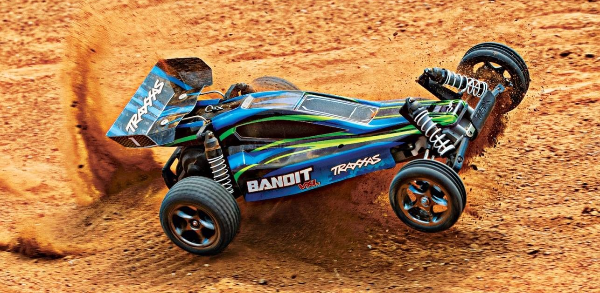Remote control (RC) vehicles have captivated enthusiasts for years. Two popular types are RC trucks and buggies.
Comparing RC trucks and buggies is essential for new and seasoned hobbyists alike. Each type offers unique features and benefits. Whether you seek speed, durability, or off-road capabilities, understanding the differences helps you make the best choice. In this post, we will explore the key attributes of both RC trucks and buggies.
By the end, you will have a clear idea of which RC vehicle suits your interests and needs best. Let’s dive into the world of RC trucks and buggies.
Design And Build
When it comes to RC vehicles, design and build play a crucial role. The difference between an RC truck and a buggy is evident in their structure and materials. Understanding these differences can help you choose the right one for your needs.
Structural Differences
RC trucks have a robust and tall structure. They are designed to handle rough terrains and obstacles. The higher ground clearance helps them navigate uneven surfaces with ease.
RC buggies, on the other hand, have a lower and sleeker design. Their structure is optimized for speed and agility. Buggies are perfect for flat tracks and smooth surfaces.
Material And Durability
RC trucks are built with heavy-duty materials. These include strong plastics and sometimes metal parts. This makes them durable and capable of withstanding hard impacts.
RC buggies use lightweight materials. They often feature high-quality plastics and carbon fiber. This ensures they remain light and fast, though they may not be as tough as trucks.

Credit: www.grepow.com
Performance On Various Terrains
RC trucks excel on rough terrains with their robust build. Buggies handle smooth surfaces better, offering superior speed and agility. Both provide unique thrills.
### Performance on Various TerrainsChoosing between an RC truck and a buggy can be tough. Each has its strengths, especially when it comes to handling different terrains. Whether you’re racing on gravel, dirt, or grass, understanding the performance differences can help you pick the right vehicle.###Handling On Rough Terrain
RC trucks excel on rough terrain. Their larger wheels and higher ground clearance allow them to navigate bumps and rocks with ease.I remember taking my RC truck out to a rocky trail. It handled the uneven ground like a champ, never getting stuck or flipped over.Buggies, on the other hand, have a lower profile. They are great for smoother surfaces but can struggle on extremely rough terrain.###Speed And Agility
When it comes to speed and agility, buggies often have the upper hand. Their lightweight design and lower center of gravity make them quicker and more agile.My buggy can take tight turns at high speeds without losing control. It’s perfect for racing on flat tracks where speed is crucial.RC trucks, while fast, are built for power and durability rather than sheer speed. They may not be as nimble, but they can tackle obstacles that would stop a buggy in its tracks.### ConclusionSo, which should you choose? If you’re looking for a vehicle to conquer rough terrains, an RC truck might be your best bet. But if speed and agility are your priorities, a buggy could be the way to go.What terrain do you usually drive on? Your answer might help you make the best choice for your RC adventures.Suspension And Shock Absorption
Rc trucks usually have tougher suspension systems for rough terrains, while buggies focus on superior shock absorption for smoother rides. Both offer unique advantages tailored to specific driving conditions.
When it comes to RC trucks and buggies, suspension and shock absorption play a significant role in their performance. Whether you’re racing on rugged terrain or navigating smooth tracks, understanding these elements can help you choose the right vehicle for your needs.Suspension Systems
Suspension systems in RC trucks and buggies are designed to tackle different types of terrain. RC trucks often have a more robust suspension with larger shock absorbers. This setup allows them to handle rough, uneven surfaces, such as dirt tracks and rocky paths, providing stability and control.On the other hand, buggies typically feature a more intricate suspension system. They are engineered for agility and precision, making them ideal for smoother tracks and sharp turns. Their lighter shock absorbers help them maintain speed while navigating obstacles.Impact On Performance
The suspension system directly affects the performance of your RC vehicle. For RC trucks, a strong suspension means better shock absorption on rough terrains. This leads to a smoother ride and reduced wear and tear on the vehicle components. For example, when I took my RC truck to a rocky trail, it effortlessly absorbed the impact, making the ride enjoyable and less bumpy.Conversely, buggies with their agile suspension systems excel in races with tight corners and smooth surfaces. Their ability to swiftly maneuver through obstacles without losing speed can be a game-changer in competitive racing. Imagine racing on a flat track with sharp turns; the buggy’s suspension would allow you to maintain high speed and precise control.Consider your typical terrain and racing conditions. Are you more inclined to explore rugged paths or race on smooth tracks? Your choice of suspension system will heavily influence your RC experience.Which suspension system aligns with your RC adventures?Battery Life And Power
When choosing between RC trucks and buggies, battery life and power play a significant role. Each type of vehicle offers different battery capacities and power outputs. Understanding these differences helps you decide which vehicle suits your needs better.
Battery Capacity
RC trucks often have larger battery capacities. This means they can run longer on a single charge. Larger batteries are necessary because trucks usually weigh more and need more power. Buggies, on the other hand, generally have smaller batteries. They are lighter and more agile, so they need less energy to operate.
Power Output
Power output is another important factor. RC trucks are designed for raw power. They can handle rough terrains and steep inclines easily. Buggies focus more on speed and agility. Their power output is geared towards quick acceleration and maneuverability. This makes buggies ideal for racing on smooth tracks.
Ease Of Maintenance
When it comes to choosing between an RC truck and a buggy, ease of maintenance is a crucial factor to consider. Whether you’re a seasoned RC enthusiast or a beginner, the time and effort required to keep your vehicle in top shape can significantly impact your overall experience. Below, we’ll delve into various aspects of maintenance, highlighting the differences between RC trucks and buggies.
Repair And Replacement
Both RC trucks and buggies require regular maintenance, but the ease of repair and replacement can vary. Trucks, with their robust build, often come with more accessible parts. You can quickly swap out broken components like suspension arms or wheels.
Buggies, on the other hand, are designed for high-speed performance and may have parts that are more intricate. This could make repairs a bit more challenging. However, if you enjoy tinkering and have a knack for detailed work, maintaining a buggy can be a rewarding experience.
Availability Of Parts
One of the key factors in ease of maintenance is the availability of parts. RC trucks are generally more popular, so you will find that parts are readily available at most hobby shops and online stores.
Buggies, while also popular, might not have as wide a range of parts readily available. If you own a less common model, you might need to wait for parts to be shipped. This can be a bit of a hassle if you’re eager to get back on the track.
Have you ever found yourself unable to find a crucial part for your RC vehicle? It can be incredibly frustrating. Ensuring that you can easily get replacement parts is essential for a smooth RC experience.
Overall, whether you choose an RC truck or a buggy, understanding the maintenance requirements will help you make an informed decision. It’s all about finding the right balance between performance and practicality for your needs.

Credit: blog.ampow.com
Cost And Value For Money
Choosing between an RC truck and a buggy can be tricky. Understanding the cost and value for money is crucial. Let’s dive into the initial investment and long-term costs of both options.
Initial Investment
RC trucks often come with a higher price tag. They offer more features and robust builds. This makes them suitable for various terrains. Buggies, on the other hand, usually cost less upfront. They are designed for speed and agility, often making them lighter and less expensive.
Consider what you want to do with your RC vehicle. If you’re interested in off-road adventures, investing in a truck might be worth it. If you prefer racing on smoother tracks, a buggy could be the better choice.
Long-term Costs
Long-term costs can add up over time. Trucks tend to need more maintenance due to their complex build. Replacement parts can be pricey. Buggies are simpler and often require fewer repairs. This can save you money in the long run.
Think about the cost of batteries, tires, and other consumables. Trucks may wear out parts faster because they face rougher conditions. Buggies usually have lower wear and tear, reducing the need for frequent replacements.
Both options have their own set of expenses. Weigh the initial investment against the long-term costs to make the best decision for your needs and budget.
User Experience
Choosing between an RC truck and a buggy can be challenging. Both offer unique user experiences. Your choice depends on your skill level and preferences. Let’s dive into how each fares in terms of user experience.
Beginner Friendly
RC trucks are often more beginner friendly. Their larger size and robust build make them easier to control. This can be comforting for new users. The trucks can handle rough terrain and occasional bumps. They usually have simpler controls. This allows newcomers to enjoy without feeling overwhelmed.
Advanced User Preferences
Advanced users often prefer RC buggies. They offer more precision and speed. Buggies excel in agility and performance. Experienced users can appreciate these features. Buggies are lighter and more responsive. This makes them suitable for challenging tracks and stunts. Advanced users enjoy the control and finesse buggies provide.

Credit: www.youtube.com
Frequently Asked Questions
What Is The Difference Between A Rc Buggy And Truggy?
RC buggies are designed for off-road racing with lightweight frames and small tires. Truggies combine features of buggies and trucks, offering larger tires and stronger frames for rough terrains.
What Are The Three Types Of Rc Cars?
The three types of RC cars are electric, nitro, and gas-powered. Electric RC cars are popular for their ease of use. Nitro RC cars use nitromethane fuel for higher speeds. Gas-powered RC cars offer extended run times and realistic engine sounds.
What Is The Fastest Rc Buggy?
The Traxxas XO-1 is the fastest RC buggy, reaching speeds up to 100 mph. It offers exceptional performance and durability.
What Is The Difference Between A Short Course Truck And A Stadium Truck?
A short course truck mimics real-life off-road race trucks with wider bodies. A stadium truck features a narrower body, optimized for jumps and stunts.
What Are The Main Differences Between Rc Trucks And Buggies?
RC trucks are designed for off-road terrain with higher ground clearance. Buggies are lighter and faster, ideal for smoother surfaces.
Conclusion
Choosing between an RC truck and a buggy depends on your needs. Trucks handle rough terrain better. Buggies excel in speed and agility. Both offer unique thrills. Think about where you will drive. Consider your driving style. Try both if you can.
That way, you find what suits you best. Enjoy your RC adventures!


